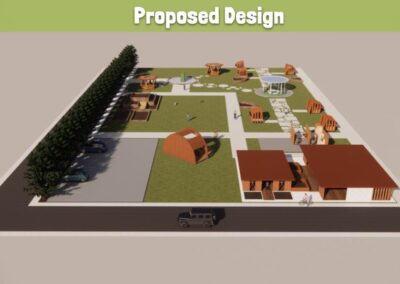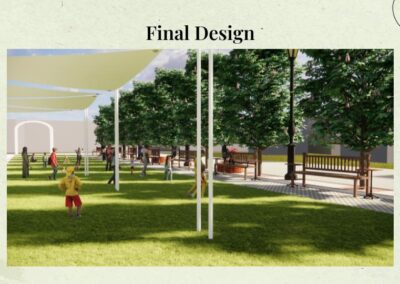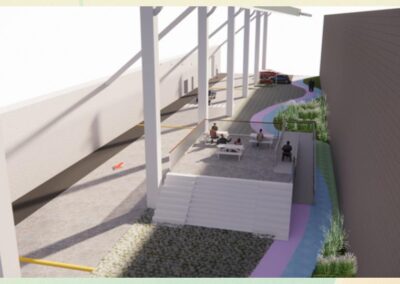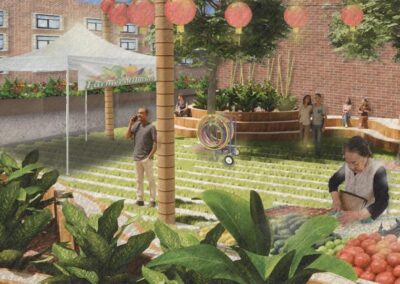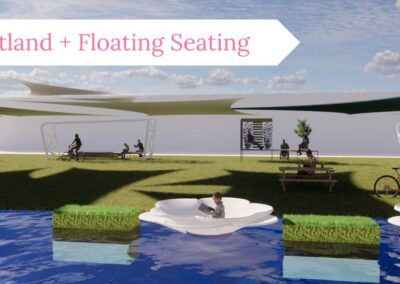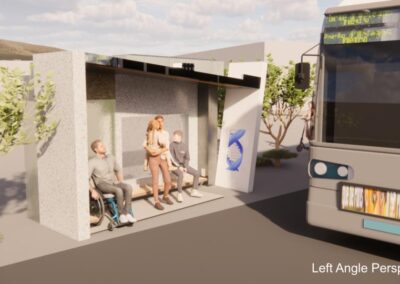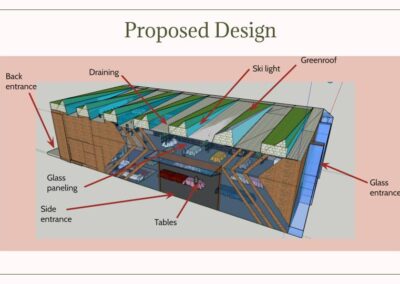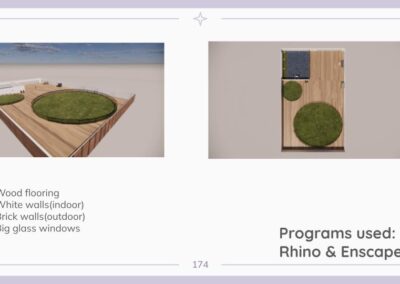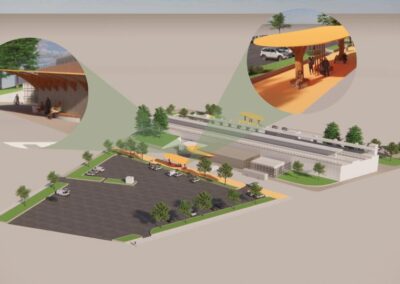May 28, 2025
2025 DESI interns complete their community projects
Estefany Benitez
Congratulations to the Hideo Sasaki Foundation’s second Designing Environmental and Social Impact (DESI) cohort! On May 3, 2025, we celebrated with our mentors, teaching assistants, partners, and family members by seeing them present the creative design solutions they created for their neighborhoods.
Launched in 2024, DESI is a semester-long paid internship that teaches high school students how to use design thinking to create solutions to the environmental and social issues in their communities. DESI interns work on independent projects based in their own neighborhoods. We pair each intern with a professional designer to guide them through their project. By the end of the semester, students have the skills to identify challenges and design and communicate creative solutions.
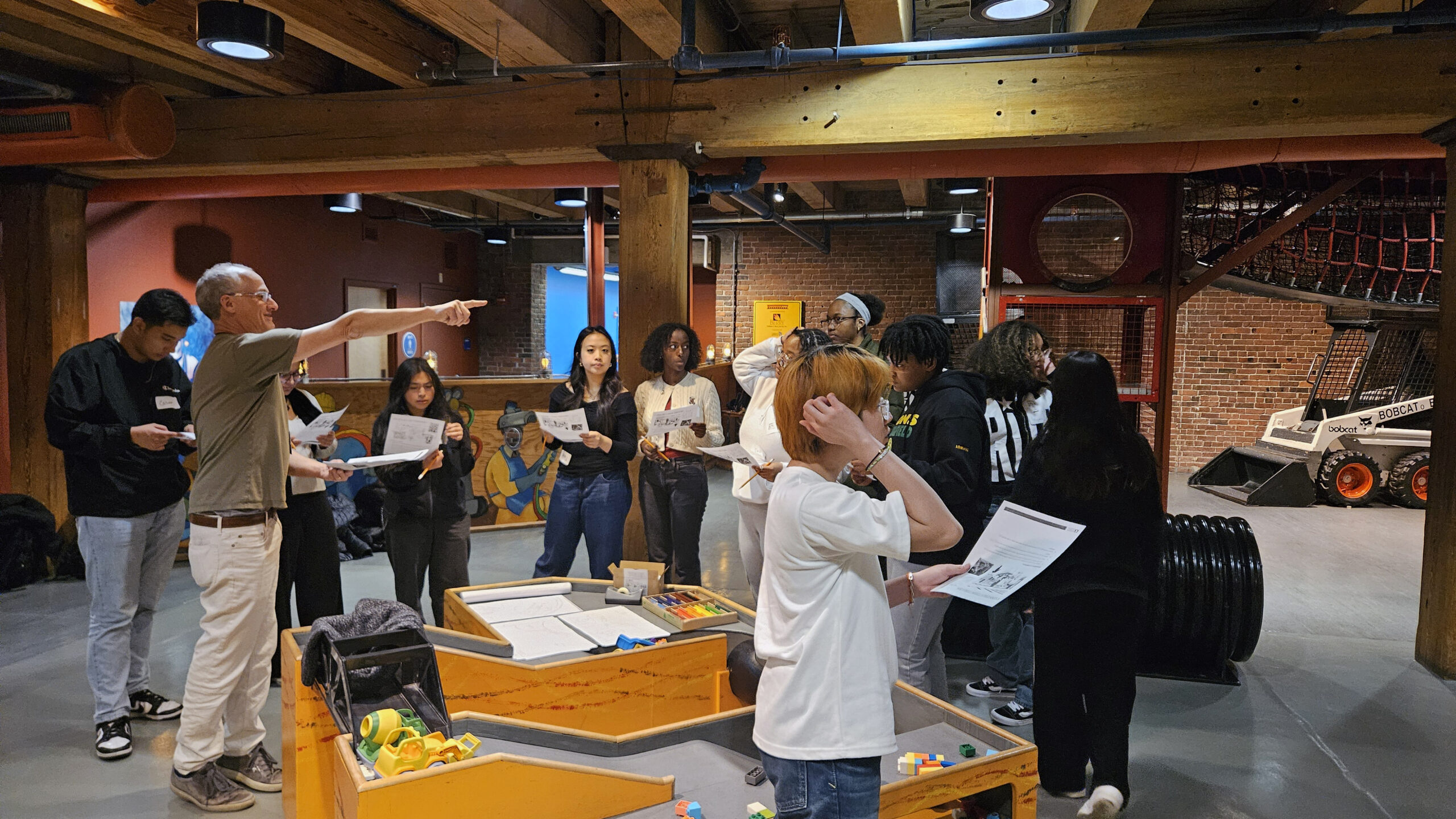
DESI site visit at the Boston Children’s Museum
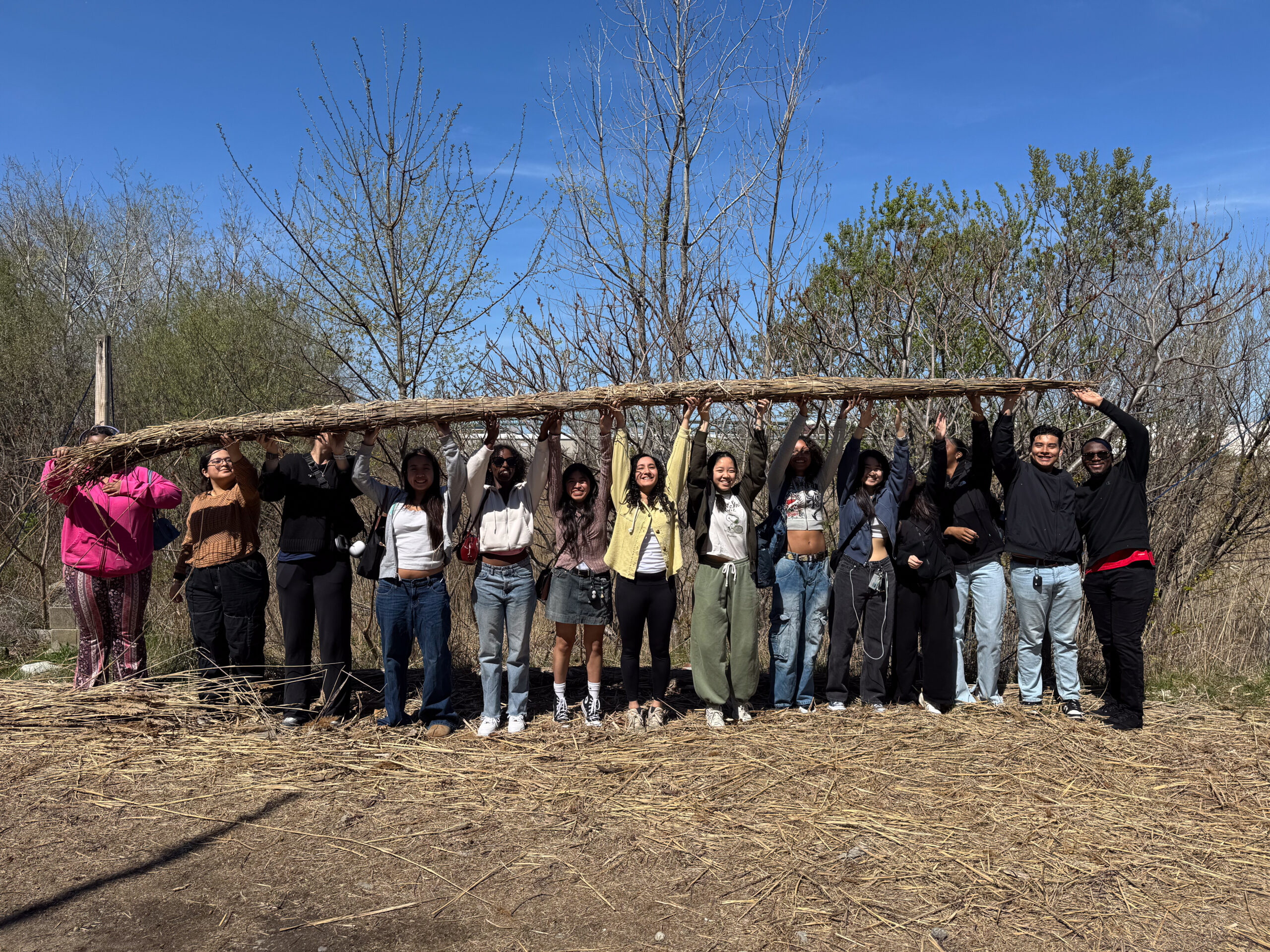
DESI site visit with the Mystic River Watershed Association and Charles River Watershed Association
This year our interns connected with community organizations, nonprofits, firms, and city staff to learn about the impactful work being done to address the effect of historical social and environmental issues in the city. These experiences influenced their design process and allowed them to think of incredibly thoughtful ways they could address transportation, accessibility, and recreation challenges their communities face.
This year the Hideo Sasaki Foundation hosted 10 interns:
Raeanna from Mattapan reimagined the Mattahunt green space so that it would have amenities that would encourage the community to come together more often.
Kelly from Jamaica Plain transformed a Boston Housing Authority parking lot into a flower haven where the community could lounge outdoors and wait for public transportation.
Ariyana from Brighton created a concept to transform a neglected industrial alleyway in her neighborhood into an accessible and inviting space where businesses could thrive and the community could gather.
Vivian from Charlestown created a greenway on Rutherford Avenue to make existing infrastructure more accessible for pedestrians, introduce bike lanes, and revitalize an abandoned section of the road by creating an outdoor recreation area with an amazing view of Boston.
Katelyn from Bay Village transformed Tai Tung Street into a culturally responsive green space that is accessible for seniors.
Nelly from Malden designed amenities to encourage community members to visit and care for the Malden River with the hope that reconnecting with this natural resource will compel people to take care of its health in the future.
Thao from Dorchester designed bus stops better suited for winter and summer while also absorbing CO2 using algae filters.
Elfe from Roslindale transformed an empty storefront into the Rozzie Lounge, a third space where the community can enjoy many activities for free.
Dionna from Dorchester designed the first indoor dog park, addressing the lack of indoor spaces for pets and owners.
Kathleen from Malden designed an improved Malden Center MBTA stop by adding better shelter and green space, and shifting the lanes in which buses and cars move through the station.
Get a closer look at the 2025 DESI experience on Instagram with our DESI 2025 highlights, and watch the final presentations on YouTube.
A special thank you to all of the mentors, who showed outstanding dedication as they supported our interns through their projects: Sonal Aggarwal, Sasaki; Madalyn Becker, Botanica Land Care; Gabe Colombo, Sasaki; Sinead Gallivan, Sasaki; Catalina Hernandez, Walter Jacob Architects; Mytreyi Metta, Sasaki; Allentza Michel, Powerful Pathways; Eva Peet, Institute for Human Centered Design; Lucia Peña-Banda, City of Boston Planning Department; Julian Phillips, National Park Service; Gabriel Ramos, Sasaki; Scarlet Rendleman, Klopfer Martin Design Group; Ankita Shah, Peabody Office; and Molly Wimberg, Copley Wolff.
The Hideo Sasaki Foundation would also like to thank the DESI staff and teaching assistants: Estefany Benitez, Program Manager; Folajimi Bademosi, Program Coordinator; Alexis Mazzatta, senior teaching assistant and Northeastern University graduate student; Isabella Buford, teaching assistant and Tufts Urban and Environmental Policy and Planning graduate student; Jharitza Cruz Lami, teaching assistant and Boston Architectural College architecture student; Cesar Diego, teaching assistant and Wentworth Institute of Technology architecture student; and Sabrina Xu, teaching assistant and Northeastern University architecture student.
Finally, thank you to all of the DESI funders, partners, and supporters who make this program possible.
Funders: Commonwealth Corporation via Metro North Workforce Board, City of Boston Office of Youth Employment and Opportunity, Sasaki
Supporting Organizations: BACNOMAS, Black Girl Environmentalist, Boston Children’s Museum, Botanica Land Care, Center for Indigenous Peoples Rights, Charles River Watershed Association, City of Boston Planning Department, City of Somerville, Dudley Street Neighborhood Initiative (DSNI), Eastie Farm, Emerald Tutu, Institute for Human Centered Design, Mystic River Watershed Association, Norman B. Leventhal Map & Education Center at the Boston Public Library, North American Indian Center of Boston, Sasaki, Social Impact Collective, and Stull and Lee Incorporated
